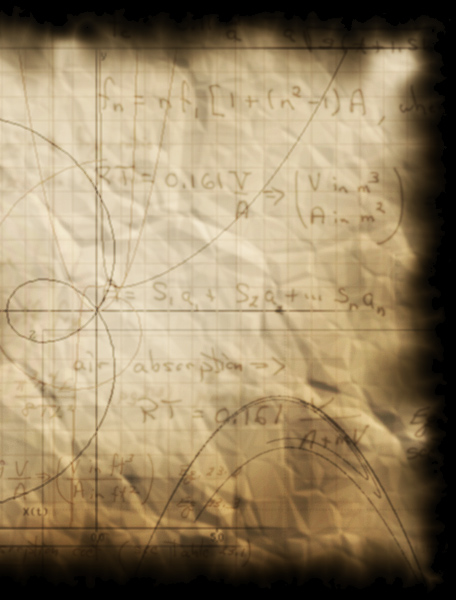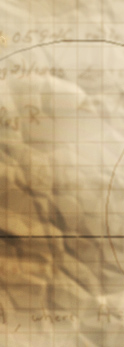









42
God created the universe as a weaving of chaos and order (Gen 1:4, Isa 45:7). However, in the six days of creation, God never has a conflict with chaos, nor is it personified in a form that rivals Godís power, much less equals it. Rather, it is integrated into the universe and into the lives of its inhabitants. Even so, God pronounces the work ďgoodĒ seven times, showing that this chaotic world has value. As the habitat and the source of food for humanity it sustains a human as they mature physically, but it also is structured in such a way for a human to come to a moral maturity. God given free will to choose between the alternatives provided allows for that maturity to be good or evil as one decides. The presence of both makes the universe in which humanity dwells a moral and ethical realm, but the universe is finite- in life and dimension- and it is outside of this realm that God exists. Therefore God is not a moral or ethical being, and is ultimately sovereign over the cosmos.
The physical universe conveys Truth about God, which can be ascertained by Godís creation, man. Godís law, another creation, also conveys Truth and gives peace to the hearts of its followers (Psalm 19). History, the prior acts of the creation, and law interpret one another, cycling back until the two converge. Here is the garden.
The garden itself is unique. The narrative of Eden is a story of Truth embedded in truth. In scripture, it is given a specific location on the earth, but there was an evident suspension of time within its confines. Chaos was allowed in the garden, as evidenced by the presence of the serpent, even before sin had entered the world through humanity exercising free will in disobeying God. However, God also came into the garden to converse with the man and woman who were made in the likeness of God (Gen 5:1).
Eden functions as the schoolroom for the education of Godís new creation and its story functions as a lesson for their descendents. Ancient Near Eastern cultures inseparably connected the structure and nature of the cosmos with the structure of society. Stories of creation therefore inherently had moral underpinning and something of a blueprint for societal structure (even if not explicit). The Genesis story is no different. In the garden, man and woman are given a directive to subdue and rule over the earth (Gen 1:26-28). They are given a clear choice between obeying and disobeying God. After disobeying they learn that they are moral creatures and that there are grave consequences to sin, though they are not damaged in any way that makes them less in the image and likeness of the Creator. After their sin, the tension placed between all humans and the serpent illustrates the internal battle that mankind must fight against evil; God says Adam will govern Eve which sets up a familial hierarchy, a structure that was absent in the garden (Gen 3:15-16). These relationships and directives are better understood as a reflection of Godís own actions.
It is important to note that these reflections and the carrying out of other directives given by God to humanity were not possible before sin. Adamís rule over Eve was to be like the rule of the sun over the day. He was to sustain, nurture, and protect her, care that would not be necessary from him in the garden where everything was already provided. They also do not conceive any offspring before sin because they were without knowledge of how to do so, or even that reproduction was possible (Gen 2:25, 3:20). Outside of Eden, they bring forth children in their likeness, a reflection of Godís creation of man. Godís demonstration of domesticating chaos by cursing the serpent comes only after sin, and Adam and Eve were in no position to imitate God in this way without knowing sin. Furthermore, it is outside of the garden that Cain is explicitly instructed to master sin (Gen 4:7).
These orders to strive to domesticate chaos in the universe call all humanity to imitate Godís domestication of evil. Both natural and manmade chaos and order exist in the universe (mudslides, riots, seasons, and architecture, for example.) Chaos and evil were not made to rule; God made the universe with good as well as evil, and further crippled the evil there was with the curse to the serpent before the expulsion from Eden. God gave humanity the promise that, though chaos will continue in the universe, not only will humanity be able to dominate it more than it can damage mankind, in The End evil will be annihilated (Gen 3:15 Rev 21).
This war between order and chaos has two primary battlefields that overlap. The internal (or spiritual) world of a soul is encased in a human, which is in turn encased in the universe. Internal and external interact in this realm of ethics and morality. (Initially lacking human evil, the garden does not meet the qualifications for this realm.) Thoughts become actions, and actions lead to thoughts; these can be either to Godís glory and ones own uplifting, or to ones detriment. Humans dwelling in the world are not more inclined to detrimental thoughts and actions because of Adam and Eveís sin. Once the man and woman left the garden they had no greater inclination to sin than they did in the garden, though perhaps more opportunities. Neither then, did their offspring have crippled wills against temptation. God appointed humans as vice regents on Earth to maintain and rule over it with this strength (Psalm 8). As the caretakers of the world, humanity is not to be reckless with what it has been given in terms of the physical or the spiritual. Mankind is called to maintain good and oppose evil continually, though it is God who will finally rid the cosmos of chaos and evil.
The chaos of the physical world is manifested in cataclysmic events such as floods, tornadoes, tsunamis, disease, drought, plagues, fires, novas, and galactic collisions. The order of the cosmos can be seen in the regularity of events, sometimes even of chaotic events: rain cycles, solar and lunar cycles, seasons, star life cycles, Fibonacci numbers in nature. God tamed chaos when he let humanity loose on the earth, so there is no danger of opposing God by irrigating crops in a dry season or trying to find a cure for cancer. The character of an individual grows in adversity, so the character of the whole of mankind as it fights against common ills. Neither are humans in the wrong to strive to better understand the secrets of the physical world, though there is the danger of elevating Godís creation above God. (Prov 25:2, Rom 1:18-23).
Spiritual order and chaos appear to be much simpler at first glance. There is good and there is evil, as plain as black and white. However, it is against evil that humanity must fight more intensely and more frequently than natural disaster or illness, and often humans perceive gray areas and are unsure of how to proceed correctly. Since mankind is given more control over its individual acts than the acts of nature, there is more potential for poor human choices to appear to dominate and cripple the world. The consequences of these choices, juxtaposed with natural disasters, can seem to encompass the whole universe giving the appearance that chaos is in control. The fact that there is visible good in the world is what prevents humanity from despairing of itself.
In Israelís history there were times when every trace of visible good seemed to vanish from the world. Their past was bleak and their future looked bleaker. This led to a an apocalyptic world view that became full blown in the post exilic age. The apocalyptic world view includes the beliefs that any hope of humanity creating an institution of good- be it politics, or religion, or anything else- is lost. Since in these beliefs it is impossible for humans to achieve Godís will on earth, those with an apocalyptic mindset conclude that the solution must and will come from heaven. In the literature influenced by this world view, God comes to earth, destroys all evil and chaos, sets up a new, perfect, eternal, reign, and all is shalom (Rev 21, Isa 24-27).
Humanity may not be as hopeless as the apocalyptic writers believed, but they were correct in their belief that humanity is incapable of ridding the universe of all chaos and evil. However, the universe was created the way it was in order to achieve a certain purpose; it is not arbitrarily ordered and chaotic. It is a moral realm so that humans may come to ethical and moral maturity by choosing what is good and right in the face of darkness and evil. This maturity is necessary in order that one may become fit for Godís presence. In apocalyptic literature, the righteous survive destruction of the earth and live in the new Jerusalem with God as their light and King (Rev 21). The righteous are those who come to moral maturity by imitation of God in this realm. They are the people of God who will be in his presence after the annihilation of chaos. This is, as far as is apparent, the meaning and purpose of life and the universe.
 |
 |
 |
|||
|
|
|
 |
|||
 |
 |
|
|||
|
|
|
||||
 |
|||||
|
|
|||||
 |
|||||
 |
|||||
 |
|||||